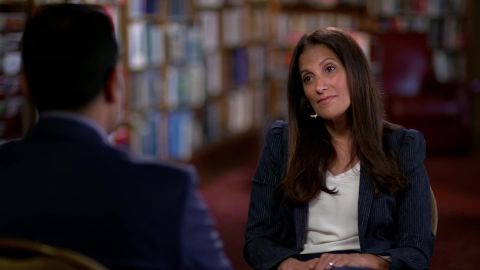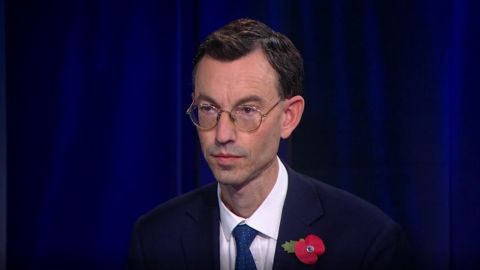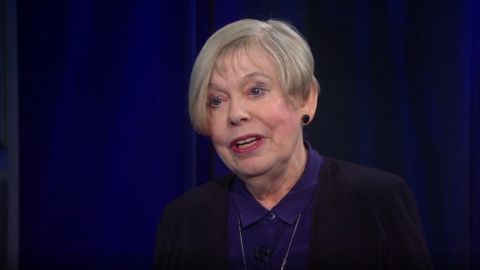Read Transcript EXPAND
CHRISTIANE AMANPOUR: It’s really interesting because I find it fascinating that you came to Islam with your visit to the Middle East but also by seeing and absorbing this vilification of a religion. And yet, you don’t shy away from criticizing —
KAREN ARMSTRONG, AUTHOR, “THE LOST ART OF SCRIPTURE”: No.
AMANPOUR: — the way it distorted religion and the way it used religion as a tool for justifying or enabling terrorism and extremism.
ARMSTRONG: Well, some have — do that and others use the tradition to counter that. But all our traditions are flawed. All our traditions are patriarchal. And women are beginning to make a comeback. And we’re beginning to — because we are a violent species, and our scripture reflects us. We are the only species, I believe, that kills its own kind and we’ve got devised — with our huge brains, we’ve devised extraordinarily, effective and horrible ways of killing people or mass. And so, the scriptures reflect us. They are not just all holy. Every single scripture, it contains violent passages as well as those that speak of compassion.
AMANPOUR: Yes. Because in your new book, “The Lost Art of Scripture,” and this comes after your 2009 book, “The Case for God,” I mean, you’ve really, obviously, been digging into this so seriously. But you do talk about equal opportunity problems, if I can put it that way, with extremes in all the major religions. For instance, one of the quotes from the book you write, “Militant atheists have condemned the bible as a pack of lies, while Christian fundamentalists have developed a creation science. Jihadis cite passages from the Quran to support their acts of criminal terrorism. Religious Zionists quote “proof texts” to assert their claim to the holy land and justify their enmity towards the Palestinians.” So, it’s these constant crosscurrents of claiming sort of ownership over the texts for whatever. I guess, political gains.
ARMSTRONG: But there are also those that insist that this is wrong and we can’t do that. I was interested when I was researching this, for example, to find the so-called Jihad texts, which are quoted so often by Islam expert, also by critics of Islam, did not figure at all in the first four centuries of Muslim life. The leading (INAUDIBLE) say that these effects don’t — these verses like slave and wherever you find them, for example, these reflected unique events in the prophet’s life that were no longer applicable. And so, they were never — they didn’t bother — they did this that they were not worth considering, they are no longer relevant.
About This Episode EXPAND
Religion scholar Karen Armstrong sits down with Christiane Amanpour to tell her amazing life journey from religious nun to secular scripture expert. Brendan Simms explains how Adolf Hitler came to power and the lessons we can learn from it. President of StubHub Sukhinder Singh Cassidy joins Hari to discuss diversity in tech and theBoardlist, the talent recruitment forum she founded.
LEARN MORE


